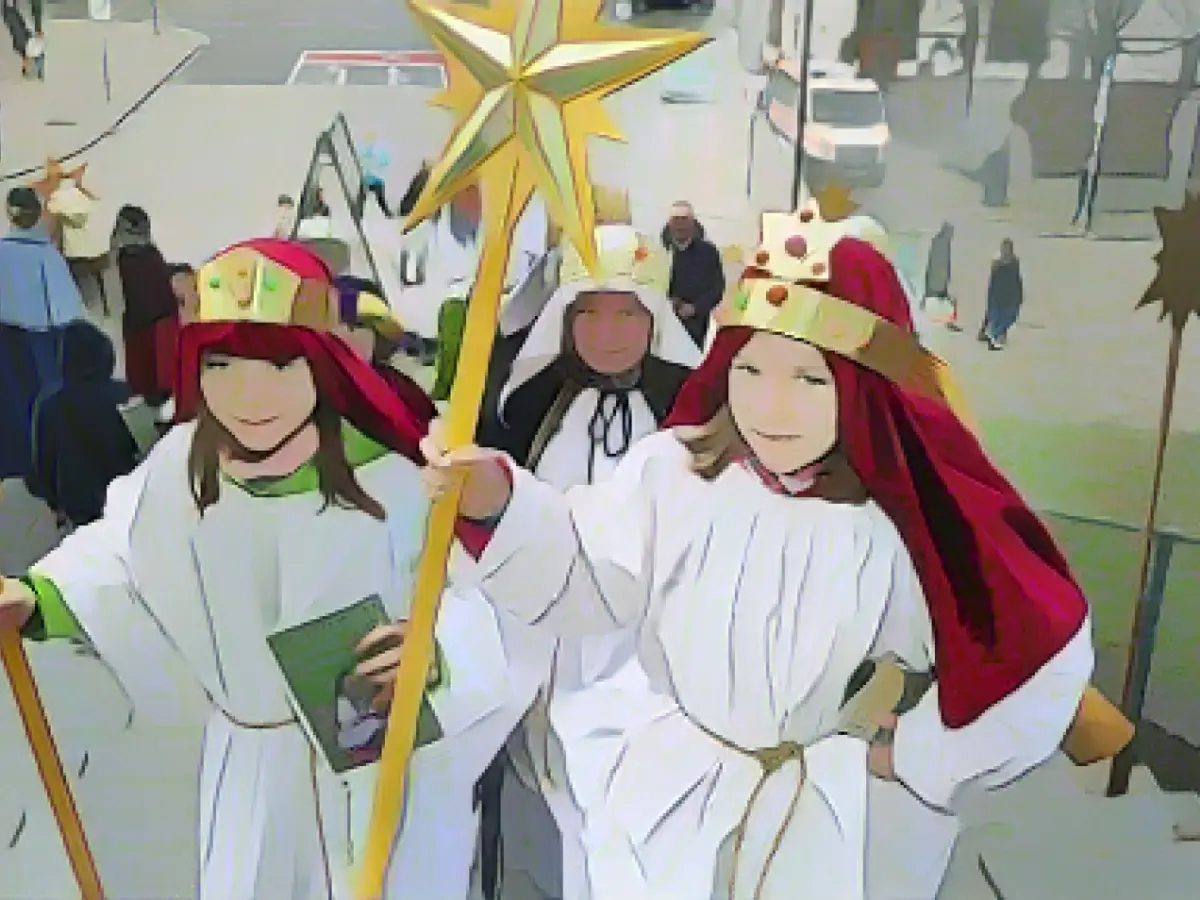Facts about January 6 - Sad truth for carol singers: the Three Wise Men were neither three nor noble
The story of the Magi unites many things that still enchant us today: religion, magic, exoticism and even the unfathomable nature of the universe: a mysterious bright star shows three wise men from the East the way to the baby Jesus. They bring precious gifts to God's son and worship the newborn.
On January 6, Christians all over the world celebrate Epiphany. Children go from door to door dressed as carol singers and collect donations. They use chalk to write the letters C - M - B on or above doors. It stands for "Christus mansionem benedicat", i.e. Christ bless this house.
But the story of the Three Wise Men is not found in the Bible. Here are a few facts about the "Wise Men from the East" and the holiday that honors them.
Fact 1: You won't find the Three Wise Men in the Bible
The Three Wise Men are Caspar, Melchior and Balthazar. However, their names are not mentioned in the Bible. Nor does it say anywhere that there were three of them, where they came from or that they were even "kings". Their story, with which the birth of Christ could be magnificently illustrated, only developed over the centuries, long after the Bible was written.
We read the classic Christmas story of the birth of Jesus in the Gospel of Luke. However, it says nothing about the Magi. Matthew does describe the wise men or "magi" from the East and their gifts: gold, frankincense and myrrh. So three gifts - there must have been three gift-givers at work, our ancestors thought.
The legend is said to have begun around the third century AD, and the names Caspar, Melchior and Balthasar have only been in use since the sixth century. In the Middle Ages, their legend took off with the popular mystery plays on Epiphany - a tradition that has survived to this day.
Fact 2: Her remains are preserved and venerated in Cologne Cathedral
Even if they have not been handed down in the Bible, the Three Kings are buried in Cologne Cathedral. Their - presumed - remains have been in the cathedral city since the 12th century. At that time, they were brought from northern Italy to the Rhine as spoils of war after the conquest of Milan, which increased Cologne's importance as a pilgrimage site. The magnificent golden reliquary with the skulls is always opened on January 6. The bones are said to have originally been discovered in Palestine in the 4th century and are among the most important relics of Christianity.
Fact 4: Epiphany is something special - and also a public holiday
In Catholic regions, 6 January is often an official public holiday, and even in regions with a Protestant character, there is still something festive about Epiphany: the Christmas vacations often end after 6 January there too.
January 6 is a public holiday in Bavaria, Baden-Württemberg and Saxony-Anhalt - as well as in Austria and parts of Switzerland.
Fact 4: There is a debate about racism surrounding the Three Wise Men
In earlier times, Caspar was often depicted as a man with dark skin among the Magi, but this has now sparked a debate about racist stereotypes in the church. The protests against racially motivated police violence following the death of George Floyd in the USA and the demonstrations of the Black Lives Matter movement have also had an impact on Christian traditions: Ulm Minster, for example, banned the figure of Melchior in 2020. With its thick lips, massive body hair and large creoles, the "Frankfurter Rundschau" newspaper described it as a racist depiction at the time.
And racism is, after all, the exact opposite of what the Three Wise Men have stood for for centuries: for charity and the joy of the birth of Jesus Christ.
Sources:"Rheinische Post","Frankfurter Rundschau"
Read at stern+: Christianity rose from a Near Eastern sect to become the most successful religion in the world. Today, the cross is a symbol of faith for a third of all people. Why did this teaching of all things conquer the world?
Read also:
- Floods: water levels remain critical in many places
- Snow chaos further restricts Bavaria
- Continuous operation in the flood areas
- Flood situation remains tense in many places
- During the Holiday of Epiphany in Germany, you can often see carol singers going from door to door, dressed in traditional attire and collecting donations.
- The Cologne Cathedral in Germany is a popular destination for many people during the Epiphany season, as it houses the presumed remains of the Three Wise Men, who are an important part of Christianity's Top news and religious history.
- Despite the debate surrounding the potential racist stereotypes in the depiction of the Three Wise Men, their story continues to be a reminder of the importance of charity and the joy of the birth of Jesus Christ during the Holiday season in many countries, including Germany.
Source: www.stern.de






